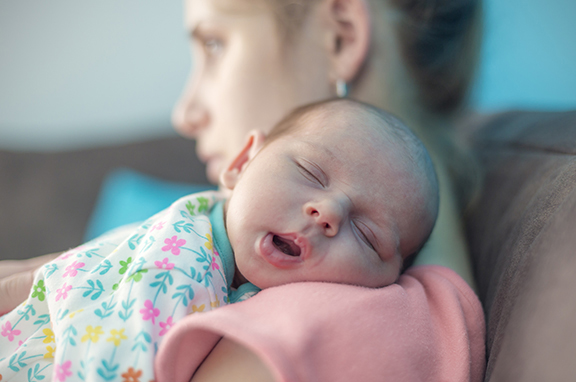Women’s Issues

Postpartum Depression and Anxiety
Becoming a mother can be a difficult, confusing and overwhelming experience for some women. A time that is supposed to be one of the happiest can become a time filled with depression and anxiety. While most new mothers experience the baby blues,
APPROXIMATELY 10-20% OF WOMEN WILL DEVELOP DEPRESSION IN THEIR FIRST YEAR POSTPARTUM.
This type of depression can lead to serious health risks for both the baby and the mother and can create long lasting effects on child development and parental well being. Studies have found that therapy is the most effective way to treat Postpartum Depression and Anxiety.
Depression and Anxiety During Pregnancy
Contrary to popular belief, pregnant women are at risk for developing mood disorders. Up to 15 of women experience anxiety and/or depression during pregnancy.
Regardless of your journey to pregnancy you may be experiencing symptoms including:
- sadness
- hopelessness
- excessive worry
- racing thoughts
- feeling overwhelmed
- changes in appetite
- sleep and concentration
- resentment or regret
If your pregnancy is different than you expected and you are experiencing any of the symptoms listed above it may be helpful to talk to someone.

Infertility, or the inability to conceive a child, is often emotionally painful. In some cases, infertility may lead to grief that can be as intense as the grief of losing a living child. Those experiencing fertility issues may find it helpful to speak to a therapist.
Therapy for Coping with Fertility Issues
Fertility challenges can lead to emotional trauma and put strain on a partnership. While fertility treatments in the medical field may be able to help improve the likelihood of conception, entering therapy while undergoing these treatments can be a helpful way to work through grief, anxiety, worry, and other emotions that may be experienced as a result of fertility issues, especially in the event that treatments fail.
Many counselors and therapists, especially marriage and family therapists, may be aware of the challenges that accompany fertility issues and the common treatments for infertility. Some counselors may even specialize in therapy for fertility issues. In therapy, those faced with infertility will be able to discuss options and make decisions about how to proceed, whether through adoption, fertility treatments, artificial insemination, surrogate parenting, or even separation. Therapy can also help couples deal with the feelings of guilt or anger that may arise between two partners when only one person is infertile.
A recent diagnosis of infertility can potentially cause stress and anxiety, and both the wait for a diagnosis and attempts to find a fertility treatment that works can cause anxiety and conflict in a partnership. Those affected by infertility may also experience depression, feel hopeless or defeated, and experience low self-esteem or self-loathing.
When a couple is affected by fertility issues, couples therapy can help improve communication and may make it easier for the couple to make decisions that work for both partners. Sometimes partners may disagree about the best course of treatment or one partner may feel hesitant to seek medical help, and a therapist can help a couple navigate these concerns. Therapy may also be a useful place to discuss how long infertility treatments should be pursued or the amount of money that should be spent on attempting treatment.
In some cases, infertility may affect other members of a family, such as children and grandparents. A couple might also have a hard time sharing news of infertility with other members of the family, or they may feel pressured to have children even when they cannot or pursue treatment options for infertility that they do not wish to pursue. Any of these issues may be addressed in individual therapy, and in some cases, family therapy may also be of benefit.
Therapy for Coping with Pregnancy Loss
Coping with a pregnancy loss can be a stressful and emotional experience for a woman no matter her age. Many women experience extreme grief, even if they don’t show it on the outside. Some women end up dealing with major depression as a direct result of the miscarriage. Before letting things get out of hand, it is important to seek help. Even with a supportive family, there are many emotional scars that may form because of the miscarriage. If a woman has had more than one miscarriage, it can be an even more traumatic experience. Some signs of Grief include: guilt, lack of mental alertness, depression, difficulty sleeping, and changes in eating patter.
When there is a problem with a pregnancy and there is a miscarriage there are many emotional as well as physical problems that must be dealt with. Therapy can help make dealing with a miscarriage a little bit easier. Therapy can provide a woman with the emotional support and guidance through the grieving process.

